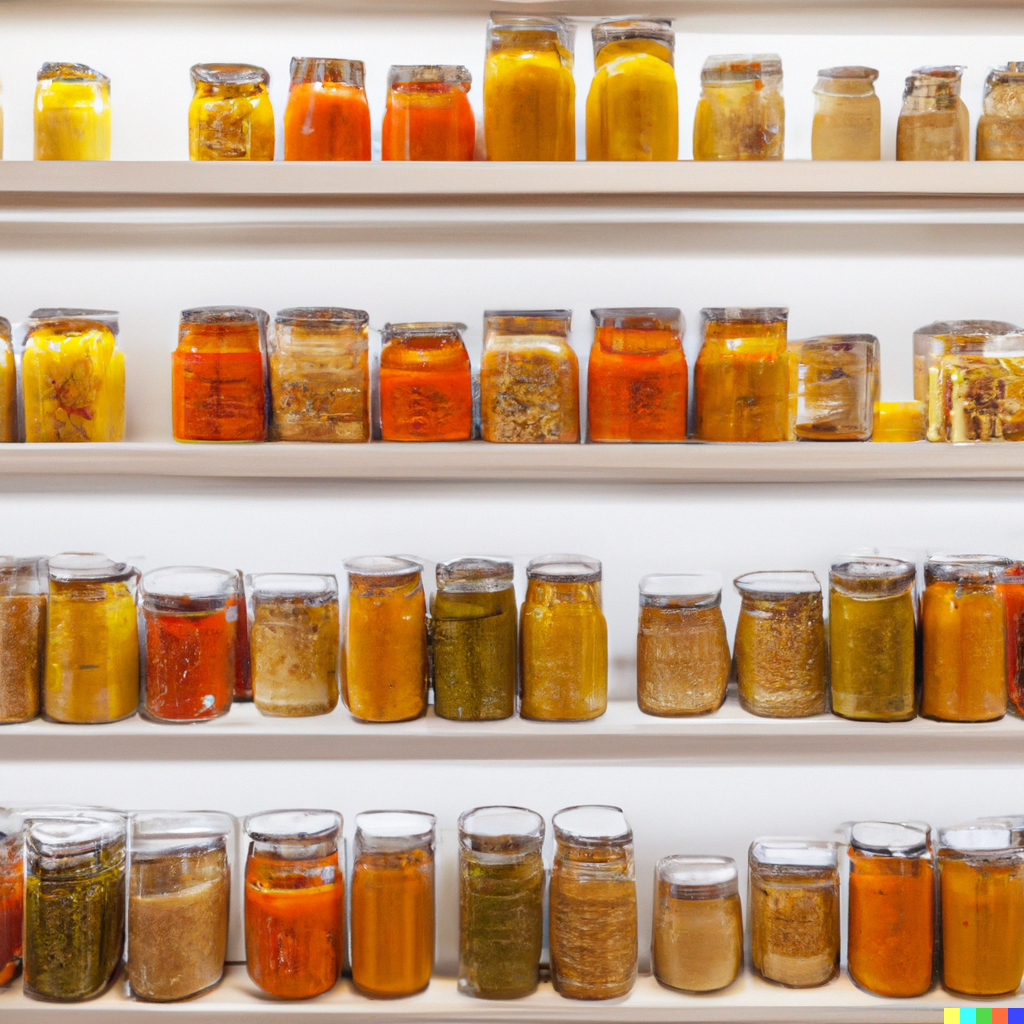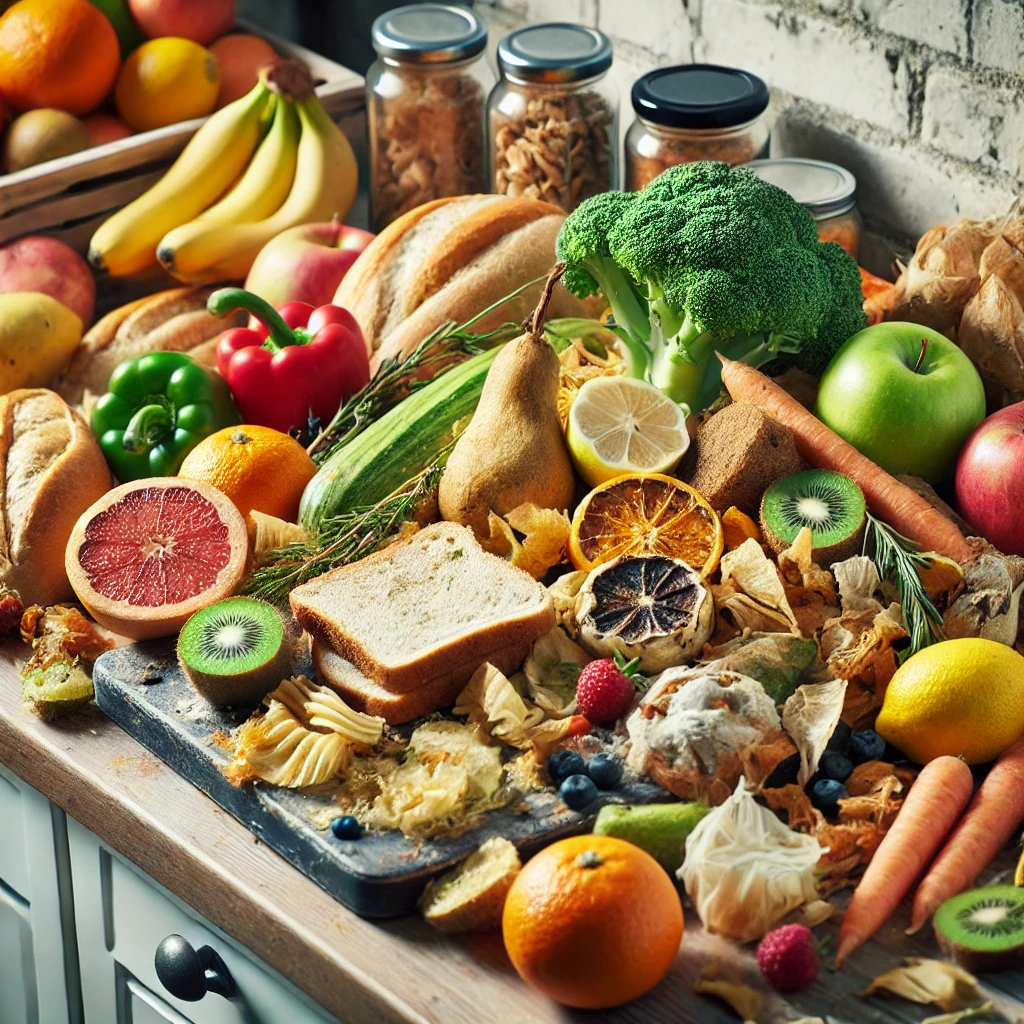Welcome to shelfwiki
Welcome to Shelfwiki! Here, we’re on a mission to empower individuals and communities to reduce food waste by understanding and extending the shelf life of their groceries. At Shelfwiki, we believe that knowledge is the key to minimizing waste and maximizing the use of every ingredient in your kitchen. Our platform is dedicated to providing comprehensive insights, practical tips, and science-backed information about food shelf life. Join us in our commitment to a sustainable future, one where every meal is savored and food waste becomes a thing of the past!

Food waste is a significant global issue with profound environmental, economic, and social implications. Understanding the scale of the problem is essential for developing effective strategies to mitigate it.
Global Food Waste Statistics:
- Total Volume: In 2022, approximately 1.05 billion tonnes of food were wasted worldwide across retail, food service, and household sectors. United Nations Environment Programme
- Per Capita Waste: The average amount of food waste per person was estimated at 132 kg, with households contributing about 79 kg per capita. Statista
- Proportion of Food Wasted: Roughly 19% of food available to consumers was wasted across retail, food services, and households. Statista
Food Waste in Sweden:
- Total Food Waste: In 2022, Sweden generated approximately 1.2 million tonnes of solid food waste, equating to 117 kg per person. Including food and drinks poured down the drain in households, the total was about 1.4 million tonnes. Europeiska kommissionen
- Household Contribution: Households are significant contributors to food waste in Sweden, with ongoing efforts to reduce this through public awareness and policy initiatives.
Environmental Impact:
- Greenhouse Gas Emissions: The production of food that is ultimately wasted contributes significantly to global greenhouse gas emissions, exacerbating climate change. Instacart
- Resource Consumption: Food waste represents a substantial waste of resources, including water, energy, and labor, used in food production, processing, and distribution.
Efforts to Reduce Food Waste:
- Global Initiatives: The United Nations has set a target to halve per capita global food waste at retail and consumer levels by 2030, as part of Sustainable Development Goal 12.3. United Nations Environment Programme
- Sweden’s Targets: Sweden aims to reduce total food waste by at least 20% per capita from 2020 to 2025, with strategies focusing on increasing the share of produced food reaching consumers and reducing losses along the supply chain. Naturvårdsverket
Addressing food waste requires a collaborative effort involving governments, industries, and consumers. By implementing effective measurement, raising awareness, and adopting sustainable practices, significant progress can be made toward reducing food waste and its associated impacts.
Sources:
https://time.com/7013480/food-waste-recycle-sweden/?utm_source=chatgpt.com
https://www.ft.com/content/1f89c6af-abd4-4874-81d1-fae9d3a92a11?utm_source=chatgpt.com

- (ingen rubrik)
- Aioli
- Ajvar relish
- Alaska pollock
- Alcoholic soda
- Alfalfa sprouts
- Aloe vera juice
- American Babka
- American Pancakes
- Anchovy
- Apizza
- Apple Cobbler
- Apple Crisp
- Apple Pie
- Avocado Toast
- Bagel and Lox
- Banana Bread
- Bananas Foster
- Barbecue Ribs
- Beef on Weck
- Beer Brats
- Beignets
- Biscuits ’n’ Gravy
- Boiled Crawfish
- Boiled Main Lobster
- Boston Cream Pie
- Brisket
- Brownie Sundae
- Brownies
- Buckeyes
- California Sourdough Bread
- Carne asada burrito
- Carne Asada Fries
- Cheese curds
- Cheesesteak
- Chicago-Style Hot Dog
- Chicken Parmigiana
- Chicken Tenders
- Chili con Carne
- Chimichanga
- Chocolate Chip Cookies
- Chocolate Fondue
- Clam Bake
- Corn on the Cob
- Cuban Bread
- Cuban Sandwich
- Delmonico Steak
- Dessert Bars
- Deviled egg
- Duck breast
- Eggs Benedict
- Étouffée
- Fajitas
- Fish Fry
- Food waste in the US
- Fresh-squeezed orange juice
- Frozen Custard
- Frozen Yogurt
- Garlic Knots
- General guide
- General Tso’s chicken
- Gooey Butter Cake
- Green Chili Stew
- Grinder Sandwich
- Guide to Cooking with Less Food Waste
- Gumbo
- Honey
- Hot Chicken
- How long do apples last?
- How Long Do Apricots Last?
- How Long Do Artichokes Last?
- How Long Do Avocados Last?
- How Long Do Bananas Last?
- How Long Do Beets Last?
- How Long Do Bell Peppers Last?
- How Long Do Blackberries Last?
- How Long Do Blueberries Last?
- How Long Do Brussels Sprouts Last?
- How long do cantaloupe last?
- How Long Do Carrots Last?
- How Long Do Cherries Last?
- How Long Do Clams Last?
- How Long Do Cranberries Last?
- How Long Do Cucumbers Last?
- How Long Do Dates Last?
- How Long Do Figs Last?
- How Long Do Fish and Seafood Last?
- How Long Do Grapes Last?
- How Long Do Green Beans Last?
- How Long Do Hot Dogs Last?
- How Long Do Jalapeños Last?
- How Long Do Kiwis Last?
- How Long Do Leeks Last?
- How Long Do Lemons Last?
- How Long Do Limes Last?
- How Long Do Mangoes Last?
- How Long Do Meat and Poultry Last?
- How Long Do Mushrooms Last?
- How Long Do Mussels Last?
- How Long Do Onions Last?
- How Long Do Oranges Last?
- How Long Do Parsnips Last?
- How Long Do Peaches Last?
- How Long Do Pears Last?
- How Long Do Pineapples Last?
- How Long Do Plums Last?
- How Long Do Pomegranates Last?
- How Long Do Potatoes Last?
- How Long Do Radishes Last?
- How Long Do Raspberries Last?
- How Long Do Sausages Last?
- How Long Do Shrimp Last?
- How Long Do Strawberries Last?
- How Long Do Tomatoes Last?
- How Long Do Turnips Last?
- How Long Do Vegetables Last?
- How Long Does Acorn Squash Last?
- How Long Does Arugula Last?
- How Long Does Asparagus Last?
- How Long Does Beef Last?
- How Long Does Bison Last?
- How Long Does Broccoli Last?
- How Long Does Butternut Squash Last?
- How Long Does Cabbage Last?
- How Long Does Cauliflower Last?
- How Long Does Celery Last?
- How Long Does Chicken Last?
- How Long Does Coconut Last?
- How Long Does Cod Last?
- How Long Does Corn Last?
- How Long Does Crab Last?
- How Long Does Dragon Fruit Last?
- How Long Does Duck Last?
- How Long Does Eggplant Last?
- How long does fruits last?
- How Long Does Garlic Last?
- How Long Does Guava Last?
- How Long Does Haddock Last?
- How Long Does Halibut Last?
- How Long Does Honeydew Melon Last?
- How Long Does Kale Last?
- How Long Does Lamb Last?
- How Long Does Lettuce Last?
- How Long Does Lobster Last?
- How Long Does Lychee Last?
- How Long Does Okra Last?
- How Long Does Papaya Last?
- How Long Does Passion Fruit Last?
- How Long Does Pork Last?
- How Long Does Pumpkin Last?
- How Long Does Salmon Last?
- How Long Does Spinach Last?
- How Long Does Starfruit Last?
- How Long Does Tilapia Last?
- How Long Does Tuna Last?
- How Long Does Turkey Last?
- How Long Does Venison Last?
- How Long Does Watermelon Last?
- How Long Does Zucchini Last?
- Huckleberry Pie
- Italian Beef
- Italian Sandwich
- Jambalaya
- Jibarito
- Juicy Lucy
- Key Lime Pie
- Klobasnek
- Lemon Meringue Pie
- Lobster roll
- Malasadas
- Marionberry Pie
- Maryland Crab Cakes
- Maxwell Street Polish
- Melt Sandwich
- Milkshake
- Mississippi Mud Pie
- Molten Chocolate Cake
- Mozzarella Sticks
- New England Clam Chowder
- New Orleans-Style BBQ Shrimp
- New York City Bagels
- New York-Style Cheesecake
- Orange
- Orange chicken
- Orange juice
- Pastrami
- Penne alla Vodka
- Pineapple
- Pineapple juice
- Plate Lunch
- Po’Boy
- Poke
- Porchetta Sandwich
- Prepare food to last as long as possible
- Pulled Pork
- Pulled Pork Nachos
- Reuben
- Roast Pork Sandwich
- Sesame Chicken
- She-Crab Soup
- Shrimp and Grits
- Shrimp Bisque
- Snickerdoodle
- Spam Musubi
- Surf and Turf
- Sustainability advice
- Tenderloin
- Texas brisket sandwich
- Texas Sheet Cake
- Thanksgiving Dinner
- Tuna Tartare
- Uramaki
- Which vegetables has the longest shelf-life
- 🍖 The Ultimate Barbecue Ribs Recipe
- 🍗 The Ultimate Buffalo Wings Recipe
- 🍖 The Ultimate Classic Meatloaf Recipe
- 🍲 The Ultimate Creamy Clam Chowder Recipe
- 🥧 The Ultimate Homemade Apple Pie Recipe
- 🌭 The Ultimate Homemade Hot Dog Recipe
- 🧀 The Ultimate Homemade Macaroni and Cheese Recipe
- 🍕 The Ultimate Homemade Pizza Recipe
- 🍔 The Ultimate Juicy Homemade Hamburger
- 🍗 The Ultimate Southern Fried Chicken Recipe
